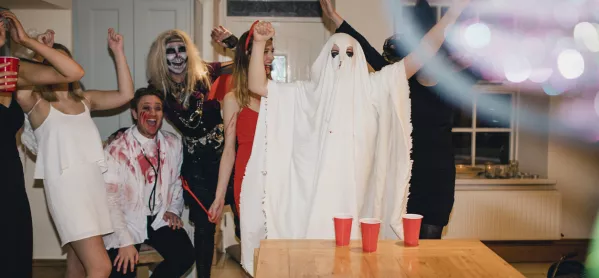Private school pupils fear freshers’ week initiations
Share
Private school pupils fear freshers’ week initiations
A large number of privately educated sixth formers are worried about the initiation rites they might face on campus during university freshers’ weeks, according to a survey published today.
The report, from the Headmasters’ and Headmistresses’ Conference (HMC) and the Girls Schools’ Association (GSA) - both representing independent schools - was based on a survey of more than 2,000 upper sixth-formers.
Related: Is it a good idea to push students into doing degrees?
Quick read: 4 problems with unconditional offers from universities
Universities: Unconditional A level uni offers rise to 38% of pupils
It found that more than a third of the Year 13 pupils were concerned or nervous about pressures from peers at universities, such as initiation rites.
Nearly half of those surveyed said they were worried about how they would budget or manage their finances while studying.
And more than 40 per cent of respondents said they were nervous about the prospect of living with new people, although the majority were looking forward to this.
Girls also were more likely to experience anxiety about starting undergraduate courses than boys.
Chris Ramsey, headmaster of Whitgift School and co-chair of the HMC Universities Committee, said: “Hugely increased numbers at university mean more students feel more anonymous - though of course it’s also true that students have always felt anonymous, sometimes tragically so, when starting this new life.”
He cited the social pressures of technology, as well as increased accountability from public exams, as factors fuelling students’ anxieties.
“These factors all make transition to university learning environments harder. To all of that, we can add the generation gaps which education inevitably produces - staff who expect attitudes they themselves had.
“The wonder is that the dropout rate - 6.2 per cent in latest figures - isn’t higher, though we should all worry that HEPI research continues to tell us that something like a third of students say they would choose another course or university if they had their time again.
“If we can help students to recognise more clearly what will be different, and how we will help them, and make it clear we want them to be different learners and people, we will continue to improve transition. As Hamlet said, the readiness is all.”
The findings echo recent research from the Higher Education Policy Institute (HEPI) think tank, which found that students’ loneliness and mental health issues are on the rise.
Nick Hillman, director of the HEPI, said: “I welcome this report on how we can better support people on track for university.
“Its goal of ensuring the best fit between applicants and places is especially important at the moment, when a drop in the number of school leavers means universities are competing more and seeking to disrupt applicants’ choices through more unconditional offers and other incentives.
“Given the recent labelling of students as ‘snowflakes’, it is worth noting that providing additional support for people on the cusp of higher education is not mollycoddling.
“The transition from the final year of school to the first year of university is one of life’s major turning points. There is nothing weak about new students using any support on offer to help light their way.”
The report also found that:
- The vast majority of pupils feel positive about their chosen subject, as well as the facilities and societies on offer at university.
- Most are positive about coping with academic pressures, but a third said they were concerned or a little nervous.
- Students are confident about the content of their courses, but are less sure about how much one-to-one teaching they can expect or how to manage their independent learning.
- One in 20 students will go overseas to study.
- Most were looking forward to their social life, including Freshers’ Week, but about a quarter said they were concerned or a little nervous.




